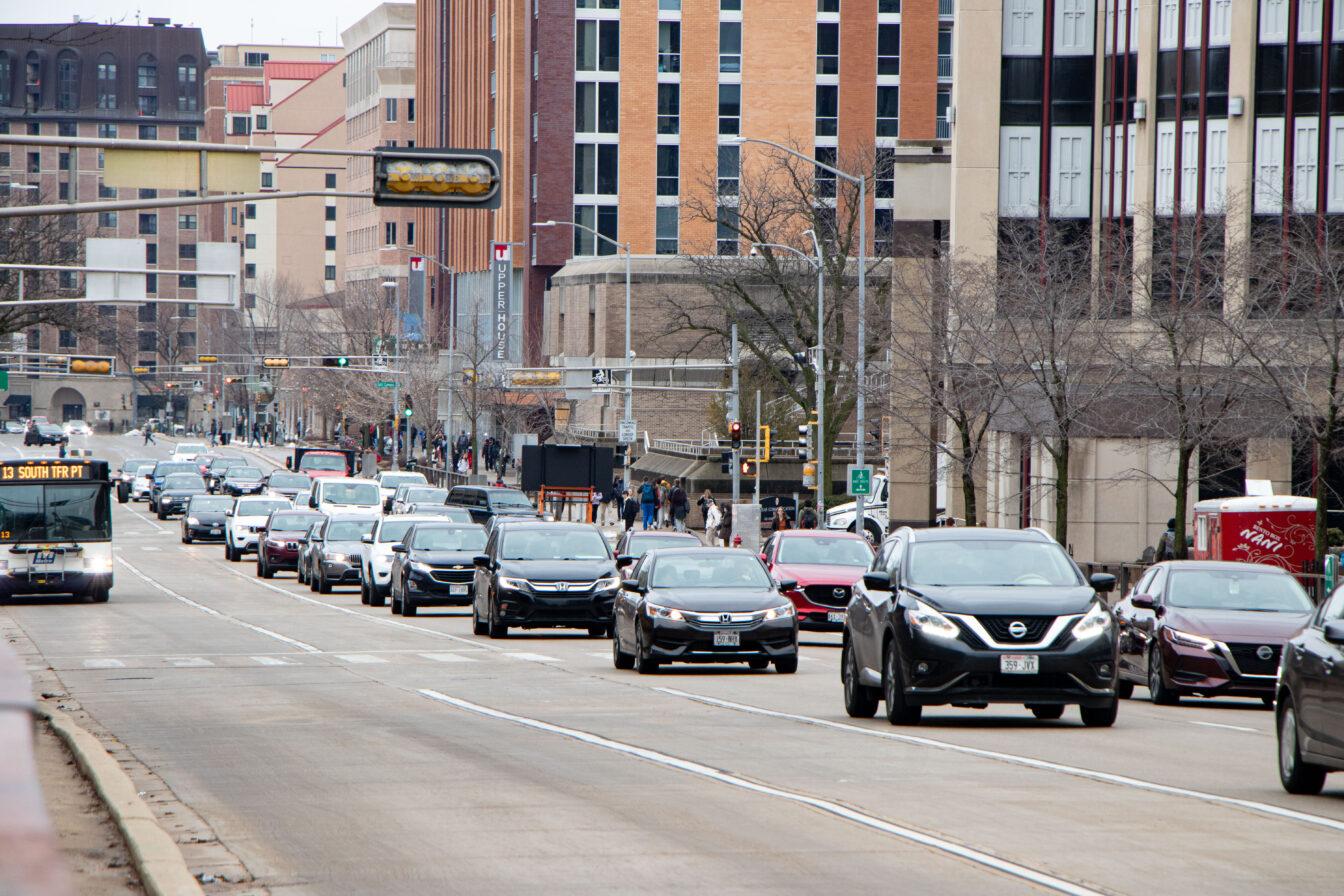The morning of Tuesday, March 7, Gov. Tim Walz of Minnesota signed the Driver’s Licenses for All bill into law, surrounded by supportive activists and lawmakers. As only the most recent state to offer driving privileges to unauthorized immigrants, Minnesota’s efforts have reignited similar movements here in Wisconsin.
Conversations about “driver’s licenses for all” cannot be had without understanding the implications of RealID. Passed on a federal level in 2005, the RealID Act establishes minimum security standards for issuing driver’s licenses, which allow people to enter certain federal buildings, nuclear power plants and board commercial airplanes.
Intentionally or not, the RealID Act places undue burdens on certain populations, like many other pieces of legislation that have emerged in the years following the 9/11 terrorist attacks. For example, obtaining a RealID requires disclosure of a full legal name, date of birth, social security number, two proofs of address and lawful status.
Asbury’s break from United Methodist Church represents direction of progressive adaptation
As a result of not being able to satisfy one or more of these prerequisites, unauthorized immigrants are particularly impacted by RealID. According to the Migration Policy Institute, there are about 70,000 unauthorized people in Wisconsin, the vast majority of whom are from Mexico and elsewhere in Central America. For this reason, Latinx leaders and organizations have been at the forefront of advocacy for “driver’s licenses for all,” arguing the provision is a necessary step forward.
Just like any other Wisconsin residents, unauthorized immigrants have work and school obligations. In Wisconsin in particular, this is becoming increasingly difficult without a personal vehicle as public transportation is deteriorating, becoming less reliable for those who need to get to places like work on time.
But for many unauthorized immigrants, driving to work every day is dreadful, as they fear legal consequences for driving without a license. The situation is even more dire in eight Wisconsin counties, which allow regular sheriffs to act as Immigration and Customs Enforcement agents in certain circumstances, according to Wisconsin Watch.
Another argument for enabling driver’s licenses for all is rooted in the need for labor. According to Wisconsin Watch, undocumented immigrants have become the “backbone” of Wisconsin dairy farms. Family farmers in particular have come to rely on this labor. Despite the Republican political affiliation of most of these farmers, many have come to advocate for driver’s licenses for all so their employees can safely and reliably get to work.
Firearm-related suicide prevention represents crucial starting point for gun control
Evidently, implementation of “driver’s licenses for all” policies has the potential to create broad social benefits across the political spectrum.
Additionally, some advocates posit that creating pathways for unauthorized immigrants to obtain driver’s licenses would create safer roads for all drivers. In a February budget address, Gov. Tony Evers appealed to this argument, as well as to the needs of Wisconsin dairy farmers and workers.
Republicans have dismissed Evers’ calls for driver’s licenses for all in his recent budget proposal, explaining that they won’t discuss “non-fiscal” issues in budget negotiations. But this response represents years of putting this issue on the back burner.
According to Wisconsin Watch, Wisconsin used to provide a pathway for unauthorized immigrants to obtain driver’s licenses until 2007. At that point, the Republican-controlled Wisconsin Legislature passed its own RealID law that prevented anyone who entered the country illegally from obtaining a driver’s license.
Today, Wisconsin law allows people to obtain identification cards that are not RealID-compliant, which have some limited use outside of federal purposes. But these cards also require proof of legal residence, leaving them out of reach for many.
For the sake of humane, equitable treatment of unauthorized immigrants, supporting the labor market on dairy farms and promoting safer roads, creating pathways for “driver’s licenses for all” is a necessary provision. But it’s important to caution those who believe this is a sufficient measure.
Twelve years later, school districts still paying price for Act 10
According to the Center on Budget and Policy Priorities, states around the country are enacting more inclusive policies, perhaps reflecting a change in attitudes toward unauthorized immigrants. In addition to “driver’s licenses for all,” the Wisconsin Legislature must increase access to educational financial aid, fortify workers’ rights, expand health care access, offer legal representation and, most fundamentally, simplify the path to legal citizenship.
“Driver’s licenses for all” is just one small part of ensuring fair treatment of unauthorized immigrants, but systemic change can’t be achieved without broader immigration reform.
That being said, “driver’s licenses for all” is a tangible place to start in creating equitable living standards for unauthorized immigrants. Despite public unwillingness to discuss the provision, some Wisconsin lawmakers say Republicans have been willing to talk about the issue privately, according to Wisconsin Watch.
America’s conscience is changing. Increasingly, unauthorized immigrants are contributing to American labor markets, society and culture. The era of ostracizing people for their legal status must come to an end. As a viable step forward, “driver’s licenses for all” policies may be the kind of legislation we need to encourage broader immigration reform in Wisconsin and beyond.
Celia Hiorns ([email protected]) is a sophomore studying journalism and political science.





















